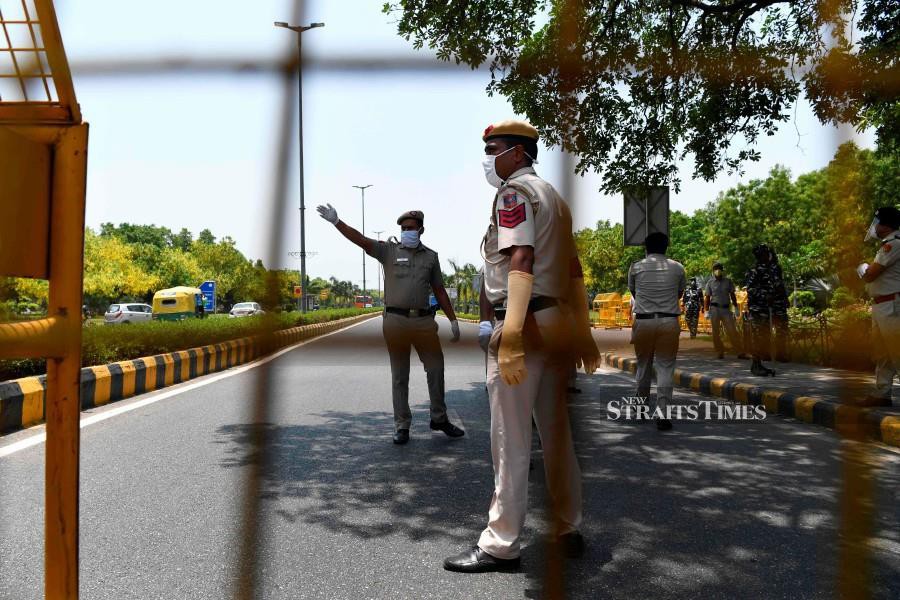THE border stand-off between China and India has put their neighbours in South Asia in a spot as they are caught in a crossfire between the nuclear-armed powers.
Smaller countries in South Asia – such as Nepal, the Maldives and Sri Lanka – have sought to stay above the fray between New Delhi, which has historical influence over the region, and Beijing, which has increasingly invested there.
According to a South China Morning Post report, observers say the Sino-Indian border dispute will make it harder to maintain this neutrality.
“Many countries in the region are re-evaluating their relationship with China,” said Geeta Kochhar, assistant professor at Jawaharlal Nehru University, noting this first began after the China-US trade war and during the global pandemic.
“The greater tension between India and China has changed the balance of the relationship, where each state looks at China with a greater sense of fear and anxiety.”
Beijing and New Delhi agreed this week to mutually disengage from their disputed Himalayan border and satellite images have shown the Chinese withdrawing from the frontlines.

In Bhutan, a nation landlocked by China in the north and India in the south, there have also been tensions over Beijing’s opposition to an environmental project at the Sakteng Wildlife Sanctuary, under Bhutanese control.
Beijing claimed at a June meeting of the Global Environmental Facility that the sanctuary was part of disputed territory between China and Bhutan, but a representative for Bhutan, India, Bangladesh, the Maldives and Sri Lanka said the sanctuary was Bhutanese territory and had never been raised in Bhutan’s previous boundary negotiations with China.
Jeff Smith, a research fellow focused on South Asia at the Washington-based Heritage Foundation, said Beijing had within two months made entirely new claims in Galwan Valley and to “a large swathe of eastern Bhutan”.
“It appeared for a time as if China was attempting to court Bhutan, and drive a wedge between Thimphu and New Delhi,” he said.
Smith said that besides Bhutan, others in South Asia would also seek to maintain neutral to avoid angering Beijing or New Delhi.
Countries including Sri Lanka and Maldives would be less likely to follow calls in India to boycott Chinese goods, because they lack a motivation to do so and are “not in as strong an economic position to be imposing punitive economic measures on China”, he said.
Beijing has for years expanded its presence in South Asia, including through investments under its transcontinental infrastructure strategy, the Belt and Road Initiative, and closer political ties with countries such as Nepal and Sri Lanka, seeking to step outside the shadow of Indian influence.

Zhang Jiadong, a former Chinese diplomat in India and professor at Fudan University in Shanghai, said India’s heavy hand in South Asia had made some wary of closer ties with China, but that deteriorating Sino-Indian relations would “not necessarily” compel countries to choose sides.
“As long as there is this balance of power between China and India, there will be space for these South Asian countries and they will not be forced to choose,” he said.
“Of course, no country hopes to be controlled by their powerful neighbours, but it’s not true that these countries would no longer welcome China if Sino-Indian relations worsen.”
Nepal’s foreign ministry had issued a statement last month that Kathmandu was confident India and China would be able to peacefully resolve their differences.
Nischal Pandey, director of the Centre of South Asian Studies in Nepal, said Kathmandu would not be able to side with either Beijing or New Delhi, because this would “outright endanger” its territorial integrity.
During the 1962 Sino-Indian border war, Nepal did not permit its land and airspace to be used by either power, he said.
Asanga Abeyagoonasekera, former director general of think tank Institute of National Security Studies Sri Lanka, said there would be an impact on Sri Lanka after the dispute between China and India expanded into a trade conflict, with several Chinese contracts suspended in India and a delay from India on customs clearance for Chinese goods, including those from others in the region.
China and the US, as well as India, have been vying for strategic influence in the Indian Ocean, which is home to key trade waterways, particularly for the world’s oil trade.